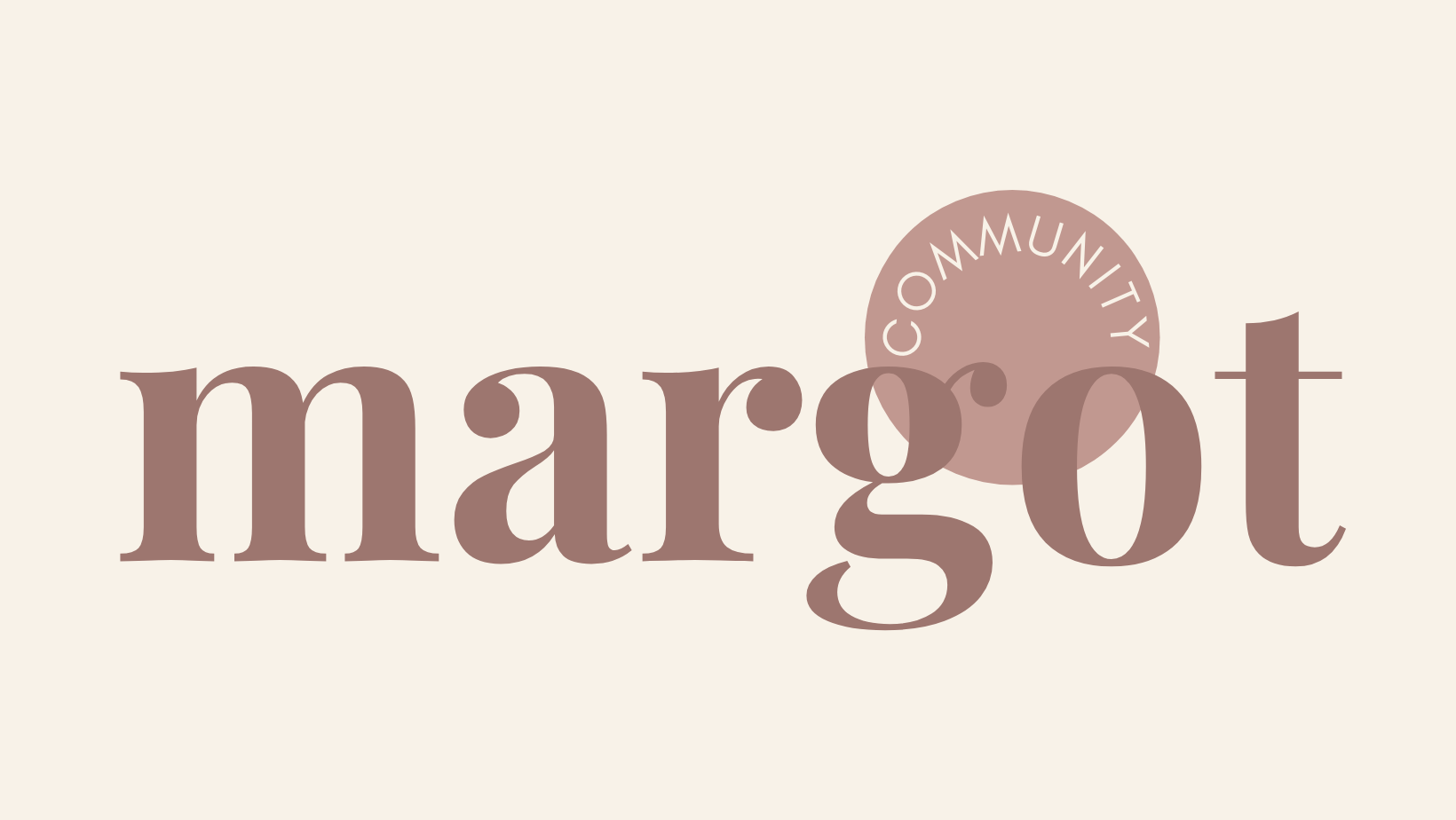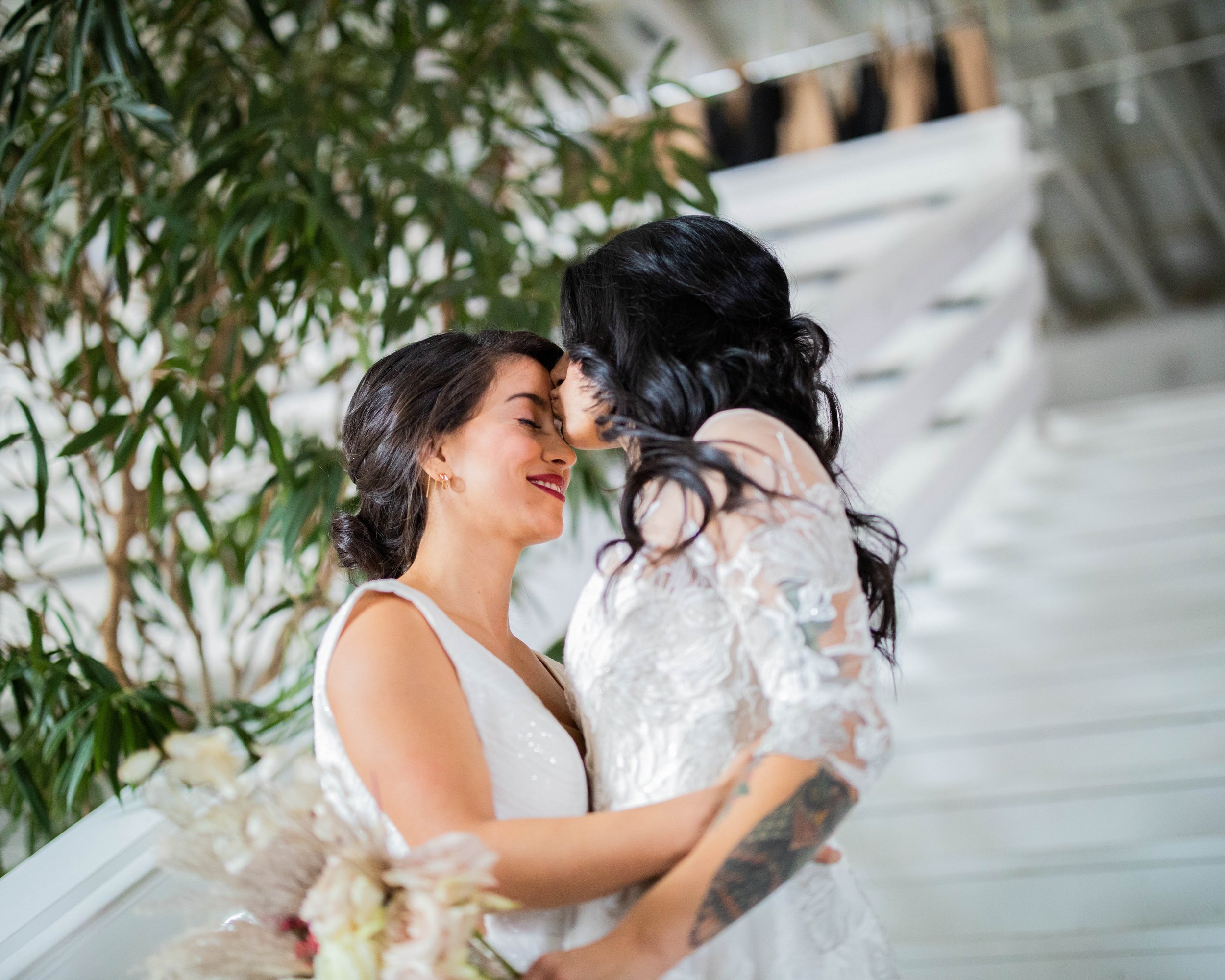Margot founder Joss Richard normalizes women being paid for their expertise
Joss Richard is the CEO and founder of Margot, an online community that connects women and gender-marginalized individuals with qualified mentors in various industries (Photo by Kat Hanegraaf)
When I think about my journey as a woman of color in tech, I realize that it hinges on one core thing: mentorship. Whether I’m setting up 30-minute 1:1s with folks who inspire me or sending out frantic emails requesting advice about promotions or salary negotiation, my mentors have always empowered me to go further. Now, I try to pave it forward.
Joss Richard, a first-time founder who’s always had an entrepreneurial mindset, wants to make mentorship more accessible through Margot, an inclusive online network that connects women and gender-marginalized individuals with mentors through 1:1 sessions. We sat down to talk about being a first-time founder, normalizing women being paid for their time and knowledge, and the process of building and owning a company.
Writer’s Note: Richard’s answers have been lightly edited for grammar, clarity, and length.
It's so exciting to see that Margot has finally launched, and there have been 60 sessions, and 170 mentors onboarded to-date across entertainment, business, and nonprofit work. Going back to the beginning, what was the catalyst for starting Margot?
I came up with the idea in early 2020 when I participated in a mentorship program for Disney employees, and it was my first time being a part of something like that. Before that, I thought mentorship was for people who just graduated or don’t know what path to take, but it made me realize that everyone benefits from mentorship. I started asking friends if they had mentorship programs like mine, and I realized that a lot of companies didn’t have the resources to run a formal mentorship program. I saw an opportunity to build out a mentorship program that was created by women, for women.
When I initially pitched Margot, I explained it as ‘Masterclass meets Cameo.’ As I got further along, I realized that Margot is more than a platform. It’s a community and a place for people to find mentors, and normalize women being compensated for their time and knowledge during these 1:1 mentorship sessions. Looking back, it’s exciting that the idea of Margot that I shared in those conversations has been brought to life.
Once you had planted the seed for Margot as a platform for 1:1 mentorship sessions, what was your next step?
I ended up interviewing women in a range of career stages and disciplines with the goal of understanding their relationship with mentorship, and if they would use a platform like Margot to connect with mentees and be paid for their time.
One common pain point that was brought up was compensation. Many women get emails or cold messages on LinkedIn asking if someone can pick their brain. A lot of times, they don’t respond - not because they don’t want to help, but because they don’t have the bandwidth. The gender pay gap is real, so not being paid for the time can be challenging. Plus, investing time to help someone grow and share experience and advice is invaluable, but it can be hard to bring up the topic of compensation. Margot can help facilitate that conversation.
What made you actually take the next step forward from having an entrepreneurial mindset to founding your own company?
My passion for Margot as an inclusive mentorship community kept me moving forward. I really believed that the idea would grow into something bigger than myself. Once I committed to building it out, it was just a matter of building out the platform and bringing mentors on board.
Honestly, I wish Margot had existed beforehand because I probably would have found a mentor or co-founder in the process. I leaned on the mentors that onboarded prior to launch, and they all believed in the idea. In the process of building out the community and learning from their advice, it reminded me that I’m doing this for all the mentors and mentees that use this platform.
I know that you want mentorship to be accessible to people who might not have the resources or funds to get the mentorship they need. How does Margot help mentors find that balance?
If a mentor is approached out of the Margot platform, they can invite mentees to book with them on Margot, or set up time with them on their own. It’s up to the mentor to decide how the platform best serves them and set their rates, and they have the autonomy to build those relationships as they see fit.
I love that Margot gives mentors that ownership. For me, I’ve been getting a lot of 1:1 requests and I invite folks to book through Margot, but I let them know that I’m happy to chat for free if they don’t have the means to pay. It helps me set expectations that my time is valuable, while still enabling me to support early-in-career talent and folks of color.
Another one of Margot’s goals is to redefine mentorship and invite people to learn from people with different experiences, regardless of whether they’re more or less senior. Why was that an important tenet of this platform?
In the early stage of looking for mentors, I focused on finding C-suite executives because I thought people needed to learn from folks with more experience. As I talked with one of the first Margot mentors, she said, ‘I started working in 1997. I can talk about being the only woman in the room, but the process of getting a job out of college was entirely different than it is now.’ She went on to say that her business wanted to build their TikTok presence and asked to book a mentor who was younger than her.
That’s when I realized that we’re redefining mentorship – C-suite executives have so much to teach younger generations, but they also have a lot to learn from them. The conversations are mutually beneficial, and both mentors and mentees can walk away from conversations with more perspective on their own work.
I know Margot partners with organizations like Girls Who Change, which connects young girls with free mentorship. How does that part of the program come to be?
Mentorship is a privilege, and I wanted Margot to provide mentorship to women in communities with socioeconomic barriers who might not have access to mentors. That’s why we have the Give Back Program, where we partner with nonprofit partners like Girls for A Change, a youth development organization that connects young girls and women with mentors who donate their time and women can donate their time to give free mentorship sessions. Our other nonprofit partner is Global G.L.O.W., a nonprofit that offers weekly progress for young girls and teens in vulnerable communities. Our mentors can also donate part of their proceeds to a nonprofit center, whether it’s a percentage or dollar amount.
You recently left your job at Disney to pursue Margot full-time. How did you know that you were ready for that transition?
It came down to bandwidth. I would wake up at 5 a.m. to work on Margot in the morning, work 9 to 5 for Disney, and go back to Margot in the evening. I don’t regret any of it, but it came to a point where I was on the verge of burnout and didn’t want to stop the momentum I had with Margot.
It’s a risk to give up a full-time job, especially in these times, but it felt right. Now, I have more bandwidth to take meetings, build partnerships and community, and oversee our vision.
What’s your advice to an entrepreneur, small business owner, or idea-have who’s reading this story?
When I was talking to a Margot mentor about when I should go live with Margot, she told me ‘If you have an idea, bring it into existence. If not, somebody else is probably having the same conversation as you or could be on the brink of building it out.’ With Margot, I believed in the idea, and I knew that there were people like me who wanted mentorship but didn’t know where to start.
What’s next for Margot? I know that Margot has a few more workshops and events. What can people expect?
We recently held an event that was all about advocating for yourself and normalizing women’s pay, and we'll be talking about how to facilitate conversations about compensation. The second day will focus on how to find a mentor, whether it’s on or off the Margot platform. That session will be followed by a networking session where attendees and mentors can chat and build connections.
We’re rolling out free monthly workshops on everything from interviewing and resume building to negotiation, so look out for updates on our Instagram. We’re also extending our B2B arm to help companies build out their mentorship programs, or leverage our mentors to support their employees.
The community continues to grow, and that’s the best part of all of this.
Thanks for sharing your story! Where can people learn more?
Check out the Margot website to find a mentor, follow along on Instagram for the latest updates, or reach out to me directly at hello@margotcommunity.com.
You can also sign up for a Margot membership, which eliminates your commission and ensures that 15% of your proceeds goes toward the Give Back program.
Written by Aleenah Ansari












